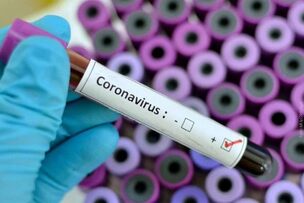 By: Andrew Suh, CPA, Partner, PKF O'Conner, Davies LLP The recent outbreak of the novel coronavirus (COVID-19) has introduced unprecedented challenges to the economy and businesses. Large scale quarantines, travel restrictions and social-distancing measures continue to drive a sharp fall in consumer spending and confidence. Businesses are facing several significant challenges that require rapid response. During these uncertain times, it is understandable for business owners and managers to feel that many issues are beyond their control. However, our specialists are fully equipped to leverage in-depth experience gained during previous economic downturns to guide management through today’s challenges. Credibility with Lenders Maintaining a strong relationship with lenders is imperative. Businesses must be proactive and communicate early and regularly. Transparency is key to maintaining credibility. If your business is at risk of defaulting on a loan, whether as a result of late or missed payments or failure to comply with covenant ratios, early communication with the lender allows for open discussions and more time to address the situation. Achieving a favorable outcome requires that you anticipate requests from your bank for financial information and prepare it with an understanding of how such data will influence the financing entity’s decision. Adopting the lender’s perspective is essential to securing continued support for your business through this difficult time. Liquidity Management In order to navigate through a crisis, you must first understand your cash “runway” – that is, how long your business can operate at the current cash spend rate with the current amount of cash on hand. Analyze your working capital profile with an eye towards identifying opportunities to extend the runway. Focus on assets and liabilities related to credit, such as accounts receivable, accounts payable and inventory. You may be able to enhance liquidity by billing customers earlier or more frequently than you do now. If your business typically carries large amounts of inventory, consider how much less you can carry without a detrimental impact on sales. Reach out to vendors and suppliers to arrange for longer payment terms or even a consignment arrangement; such negotiations may be easier than you expect as vendors may also be in a liquidity crunch, counting on you to stay afloat and continue the partnership. Operational Improvement Most businesses will look to reduce expenses during distressed situations, which is a valuable strategy for managing short-term cash flows but may not be in the best long-term interests of the business. This may be an opportune time for a strategic assessment of your business and for identifying opportunities to launch performance improvement initiatives.
Bankruptcy After considering all other alternatives, the fresh start that bankruptcy reorganization offers may be the most viable option in certain situations. In such cases, our expertise in accounting, tax and valuation is indispensable to navigating complex bankruptcy reorganizations. How We Can Help Typically, businesses facing cash flow challenges are also strapped for the time required to solve them. PKF O’Connor Davies can help you tackle these challenges by assessing, developing and executing a tailored plan for your business – one critical to freeing management to focus on running the business and addressing critical issues. Our extensive experience guiding managers during times of distress can prove essential to maintaining credibility with lenders, vendors and other stakeholders as well as optimizing operations and, if necessary, preparing for restructuring or bankruptcy. Contact Us If your business requires assistance during these challenging times, we are here to help. Please contact the partner in charge of your account or: Andrew Suh, CPA Partner [email protected] | 646.965.7816 Jonathan Moore, CPA, CM&AA Partner [email protected] | 201.639.5746
0 Comments
 By: John Lloyd, Member, Jill Rosenberg, Member, and Anthony Marchese, Counsel, Property Taxation & Valuation Group, Chiesa Shahinian & Giantomasi PC New Jersey continues to place the country’s heaviest real property tax burden on commercial and industrial property owners. While any substantial property may be a candidate for a successful appeal, real property tax appeals generally present most significant financial benefits to owners or managers of industrial, commercial or multi-family residential rental properties. A careful analysis of the tax assessments of those properties is warranted to determine whether they are being appropriately assessed and not being charged more than their fair share of taxes. Even as general market conditions continue to be strong for some property classes, the question of whether a particular property is properly assessed remains an essential exercise of due diligence for any stakeholder of real estate in New Jersey. There may be unique factors impacting a property’s value which are immune from general market conditions such as the existence of environmental contamination or other unique features of a property. On or before February 1, 2020, the tax assessor for each taxing district issues a postcard "Notice of Assessment" which lists, among other information, the property assessment for 2020. It is important to understand that, unless there has been a district-wide revaluation, "assessed" value is not necessarily the "market value" claimed by the municipality through the assessment. Rather, the municipality must defend the "imputed" or "equalized" value of the property, which takes into account the average assessment in the district as a percentage of the average usable sale in the district. This “equalized” value is often higher than the assessment and is the actual value to be analyzed in determining whether the property is fairly assessed. An appeal of a 2020 assessment must be filed on or before April 1, 2020. All appeals may be made initially to the County Board of Taxation, but if the assessment (not the equalized value) exceeds $1,000,000, then the appeal may be made directly to the New Jersey Tax Court. Direct appeals to the Tax Court must also be made by April 1, 2020. The only exception to the April deadline is if the municipality has performed a district-wide revaluation or reassessment in which case the deadline is May 1, 2020. CSG’s Property Tax Group has successfully handled appeals involving regional shopping malls, hotels, casinos, corporate headquarters, office buildings, multi-family apartment buildings and complexes, industrial properties from warehouses to special purpose properties such as chemical plants, power generation plants, oil refineries, breweries, regional reservoirs, and recreational properties such as golf courses and amusement parks. We welcome the opportunity to evaluate properties for appeal potential at no charge. Tax appeals generally are handled by the firm on a contingency fee arrangement, although other fee arrangements, including application of standard hourly rates, can be utilized. Finally, property owners should also be aware of a recent development in the tax appeal arena. As a result of an exceedingly strong market in some asset classes, especially industrial/distribution facilities and multi-unit residential properties, some municipalities have actually begun filing what have come to be known as “Reverse Tax Appeals.” In these actions the municipality is the “plaintiff” in an appeal which seeks to increase a property owner's tax assessment. CSG’s Property Tax Group has handled many of these cases and is uniquely qualified to represent you should your property be subjected to such an action. The deadlines discussed in this blog post are subject to change in light of COVID-19. They will be updated pending any adjustment made to them by our Governor and/or Supreme Court.  By: Dean J. Paranicas, President and Chief Executive Officer, HealthCare Institute of New Jersey (HINJ) New Jersey’s life sciences community is responding to the novel coronavirus (COVID-19) with urgency and priority on multiple levels. As COVID-19 is a global threat, biopharmaceutical and medical technology companies are committing expert scientific research to the effort to create a vaccine and to developing therapies. Companies also are contributing significant humanitarian aid to patients, communities and governments in need. Below are recent activities by HINJ member companies. Vaccines and Antiviral Medicines • Janssen Pharmaceutical Companies, a unit of Johnson & Johnson, is working to develop a vaccine for coronavirus in collaboration with the U.S. Biomedical Advanced Research and Development Authority (BARDA). Researchers at Janssen also are exploring about 30 previously tested medicines that might be used to help patients survive coronavirus and reduce the severity of disease. The company also has donated 350 cases of its HIV medication to Chinese researchers, who are assessing its value in combating coronavirus. • Pfizer has identified certain antiviral compounds already in development that may be effective for inhibiting coronaviruses. The company is working with a third party to screen the compounds, and if any are successful, testing could start by year’s end. It also has made a large cash donation to the nonprofit Direct Relief, which is sending personal protective gear to China. • Sanofi Pasteur is working with BARDA to utilize the company’s previous efforts toward a SARS vaccine, which may prove useful against coronavirus. The company will employ its recombinant DNA platform, which produces an exact genetic match to proteins found on the surface of the virus, to develop a novel coronavirus vaccine candidate. Financial and Product Donations • Allergan China responded with a ¥1 million donation to a shortage of medical masks, gloves and other protective equipment needed by the Chinese government. • Bayer is donating medicines and additional financial aid worth a total of approximately €1.5 million. The cash will help provide the protective clothing urgently needed by medical staff in Wuhan. The donated medicines include an antibiotic, vitamin C and an antipyretic/analgesic. • Bristol Myers Squibb (BMS) contributed approximately $750,000 in cash and needed products to Wuhan City and Hubei province. The BMS Foundation has donated more than one million personal protection items to health care workers in China. • Eli Lilly and Company’s foundation contributed $250,000 to Project Hope and Direct Relief to support the purchase and shipment of supplies to China. The Lilly Foundation also made a cash donation of about $150,000 by Lilly China to the Red Cross and will match donations made by employees. • BD donated a wide range of medical devices, including syringes, sharps and blood collection tubes, worth about $300,000 to the Red Cross in Wuhan. BD also contributed $50,000 to supply personal protective equipment to frontline health workers. • Johnson & Johnson gave 1 million surgical masks and 1 million RMB, the currency of China, to the Chinese Red Cross. The company also donated thermometers, respirators, protective suits and other supplies. • Roche is working with Chinese health authorities to ensure people can access screening and healthcare. The company has donated diagnostic tests, medical supplies and financial support. As the level and scope of activity to combat the coronavirus continues to escalate, updates on HINJ member company contributions to this effort will be posted on our website, www.hinj.org. (Specifically https://hinj.org/coronavirus-and-hinj-member-companies/ or http://bit.ly/HINJCOVID-19.)  By: Douglas Finkle, Director, CohnReznick As U.S. manufacturers and distributors extend their operations globally, they need to be aware of required filings of certain governmental-type statistical survey reports. These impact U.S. individuals and businesses owning a foreign business operation as well as U.S. businesses owned by a foreign enterprise. The Bureau of Economic Analysis (BEA) requires that, every five years, all U.S. persons directly or indirectly owning 10% or more of the voting securities of an incorporated foreign business enterprise (or an equivalent interest in an unincorporated foreign business enterprise) deliver a survey report (essentially, a census report) to the BEA. The last required report was for fiscal year 2014 and now, five years later, reporting is required for fiscal year 2019. The survey form needed to report a U.S. person’s foreign investments is Form BE-10 Benchmark Survey of US Direct Investment Abroad. The BE-10 survey involves reporting by any U.S. person meeting the requirements for reporting, even if they are not directly contacted by the BEA. The BEA website states that respondents needing to complete the 2019 BE-10 will be notified by mail between mid-February and March of 2020. Failure to comply with, or timely deliver, the survey can result in non-compliance penalties similar to those imposed for non-compliance of U.S. Census-type reporting. The BE-10 reports financial and other information related to the U.S. person’s foreign investments. The report can be filed online, by fax, or by mail. Depending on the type and number of BE-10 forms a respondent is required to file, the due date is either May 29, 2020 (fewer than 50 forms), or June 30, 2020 (50 forms or more). BEA defines a U.S. person as any individual, branch, partnership, associated group, association, estate, trust, corporation, or other organization that is resident in or subject to the jurisdiction of the United States ( here defined as the 50 states, the District of Columbia, the Commonwealth of Puerto Rico, and all territories and possessions of the United States). Based on the BEA website, it appears that a “foreign business enterprise” is any business enterprise not meeting the definition of a U.S. person. For example, if a U.S. person owns and rents out a condo in the Virgin Islands, they would not be subject to the reporting requirements since the Virgin Islands is an unincorporated and organized territory of the United States. The investment the U.S. person has in the Virgin Islands condo would not be considered foreign real estate and not considered a foreign investment for purposes of the reporting requirements. Let’s change the example to focus on a U.S. person owning and renting a condo in France. In this case, that individual would likely be subject to the BEA reporting requirements since the investment in France would be considered foreign real estate and a foreign business enterprise. Foreign real estate owned by a U.S person subjects them to the reporting requirements unless the property is residential real estate held for personal use, is not intended to provide a profit, or is a primary residence abroad leased out by the U.S. person who intends to reoccupy. In each of these cases, the property is considered real estate held for personal use and not subject to the reporting requirements. So, why does the BEA conduct the survey and how is the information used? The survey is designed, for statistical purposes, to understand the scale and effects of U.S.-owned business activities abroad. Business leaders use the statistics to inform decisions on hiring and investing while policymakers and researchers use the survey data to analyze the impact of direct investment on jobs, wages, productivity and taxes. Reporting the results of BEA surveys is mandatory under the Omnibus Trade and Completeness Act of 1988 which also specifies that survey data may only be used for statistical and analytical purposes. Foreign investors in U.S. business enterprises are potentially subject to BEA requirements. Two surveys require reporting to the BEA even if the foreign investor is not directly contacted. The BE 12 Benchmark Survey of Foreign Direct Investment in the United States, conducted every five years, mirrors the BE-10 survey but is for a foreign investor in a U.S. business enterprise. The last survey was for the 2017 fiscal year, due 5/31/2018 or 6/30/2018 depending on the BE-12 forms required to be filed. There is also the BE-13 Survey for new direct investments in the United States. This covers new foreign investments in U.S. business enterprises or expansions that meet certain criteria. These new investments must be reported to the BEA within 45 days of the investment. Every U.S. persons with investments in foreign business enterprises, and every foreign investor in a U.S. business, needs to be aware of BEA reporting requirements and deadlines. Failure to comply with any of the surveys will subject the investor to potential non-compliance penalties. |
Guest Blog
Archives
July 2024
Categories |
- About Us
- Events & Programs
-
Forums
- Diversity, Equity & Inclusion Forum
- Environmental Business Council
- Family-Owned Business Forum
- Healthcare Foum
- Higher Education Forum
- Human Resources Forum
- International Forum
- Manufacturing Forum
- Marketing Forum
- Next Gen: A Young Professionals Organization
- Non-Profit Forum
- Real Property Forum
- Technology for Business Forum
- Transportation Forum
- Women in Commerce Forum
- Membership
- COMMERCE Magazine
- Member Directory
- Member News
- Guest Blog
|
Copyright Commerce and Industry Association of New Jersey. All Rights Reserved.
365 West Passaic Street Suite 490 | Rochelle Park, NJ 07662 Phone: (201) 368-2100| [email protected] | sitemap |

 RSS Feed
RSS Feed
